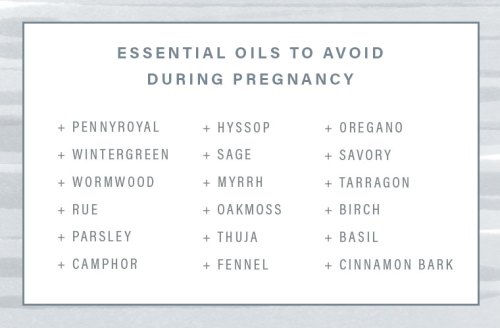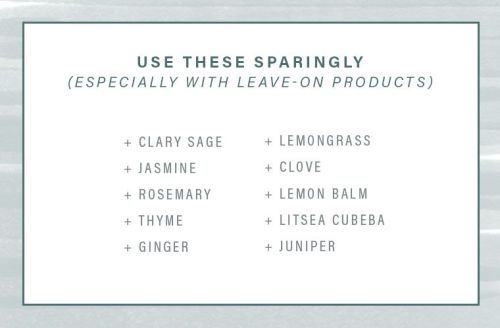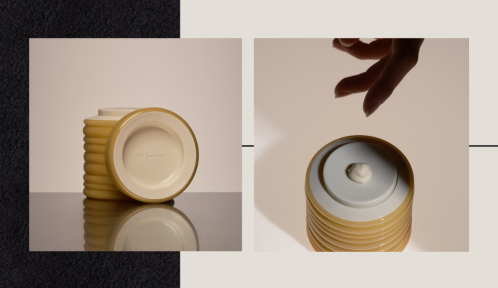Welcome to the Well+Good Healthy Pregnancy Guide, a week-long series on how SoulCycle-loving, leggings-wearing, kale salad-obsessed women can bring wellness into the next nine months (and beyond).
Here, Sarah Villafranco, MD—the skin-care expert behind Osmia Organics and a mother of two who’s seriously passionate about the power of plants—explains how to use essential oils to keep you glowing and happy while you’re expecting.
If you’ve been trying to get a handle on how to use essential oils during pregnancy, you’re probably totally confused by the contradictory information out there. To clary sage or not to clary sage? And what about evergreen oils? (You may get a “no” on evergreen from a Traditional Chinese Medicine practitioner, but a “yes” from a classically trained aromatherapist, for example.)
It can leave a mom-to-be pretty confused about the bottom line.
As a Western-trained physician and CEO of a natural skin-care company, I’ve looked at the data, read the studies, and sought the opinions of experts and aromatherapists to synthesize all this great information while keeping a connection to evidence-based medicine. So, if you’ve been looking for a common-sense guide to using essential oils in pregnancy—you’ve found it.
Relaxing oils, like ylang-ylang, sweet orange, neroli, and sandalwood can help busy moms-to-be slow down and drop into the nesting instinct.
It’s so easy to get yourself worked up and worried about every little thing in pregnancy—totally natural, as you’re practicing your mothering skills. But I’d hate to see you miss out on opportunities to nurture yourself and enhance your pregnancy with the safe use of essential oils.
Relaxing oils, like ylang-ylang, sweet orange, neroli, and sandalwood can help busy moms-to-be slow down and drop into the nesting instinct. Frankincense and geranium can work to relieve sore low backs—a common complaint among expecting mamas. And a blend of eucalyptus and peppermint can be your best friend if you get a cold, especially because you’ll want to avoid most over-the-counter cold medications during pregnancy.
The most important thing to remember is that the majority of essential oils are safe when used in low dilutions, like a couple drops in a bath, a diffuser, or massage oil. There are zero studies showing evidence of birth defects or miscarriages due to “normal use” of appropriate essential oils.
Using large, undiluted quantities of any essential oils either internally or on the skin, however, is a bad idea during pregnancy—and all other times! Always mix them with a carrier oil like coconut or jojoba.
Keep reading for more intel on safely using these powerful plant-based oils when you’ve got a baby on the way.

Things to to avoid
Taking essential oils orallyThis results in the greatest exposure to the developing baby. Do this only under the guidance of a trained expert. They are potent medicines, and even beautiful, fragrant plants can be toxic!
Using undiluted essential oils on the skinAgain, only under the direct supervision of a licensed aromatherapist should you consider this. Generally, I do not recommend undiluted topical application during pregnancy.

A little goes a long way
Other methods of essential oil use include baths, inhalation, wash-off products, and leave-on products. This will come down to personal choice, but the safest plan is one you’ve heard before: everything in moderation!
Use appropriate essential oils like the ones I mentioned above—as well as rose, cardamom, fir, spruce, tea tree, yuzu, and marjoram—moderately and in low concentrations, and you’ll be fine. And use these oils sparingly: clary sage, jasmine, rosemary, thyme, ginger, lemongrass, clove, melissa (lemon balm), litsea cubeba, and juniper.

Keep in mind that your skin—and your nose—can be much more sensitive during pregnancy, so less is more. (Sensing a trend yet?) It’s a time of many fluctuations, and skin troubles are (unfortunately) not uncommon.
Also of note: Phototoxicity is more common in pregnancy, and oils like lemon, lime, bitter orange, bergamot, grapefruit, angelica, cumin, and coriander may cause skin reactions when they’re exposed to sunlight.

No way, baby: for grown-ups only
Lastly—and very importantly—remember that just because you used an essential oil in pregnancy does not mean it’s safe for your newborn baby! Babies have sensitive skin, developing systems, and immature immune function, so most essential oils are too potent for babies under one year of age.
I recommend using unscented products on babies under 12 months, and then incorporating appropriate oils in moderation—with the guidance of an accredited aromatherapist.
A bit of background on the information here: It’s based on several factors. First, I reviewed the scientific information available online, including guidelines from the International Federation of Professional Aromatherapists (IFPA) and the National Association for Holistic Aromatherapy (NAHA). Then, I reached out to several nationally known experts and aromatherapists—many thanks to Robert Tisserand, Hope Gillerman, and Amy Galper for their guidance—and had them review this chart, incorporating most of their suggestions. If you want to dig deeper on the available scientific data for a particular essential oil, check out Essential Oil Safety by Robert Tisserand.
Hope this helps you have the happiest, healthiest (and sweetest-smelling) pregnancy ever!
PSA: You can also use essential oils to clean your home—and to keep your cool at work.
Sign Up for Our Daily Newsletter
Get all the latest in wellness, trends, food, fitness, beauty, and more delivered right to your inbox.
Got it, you've been added to our email list.










